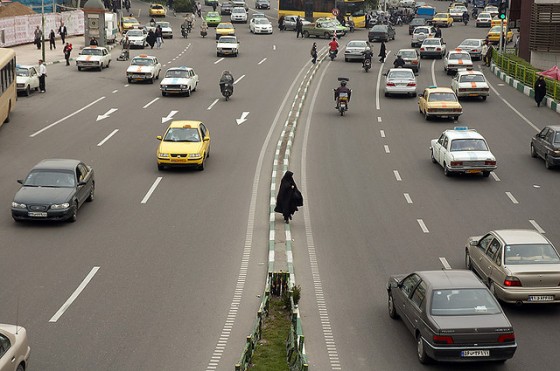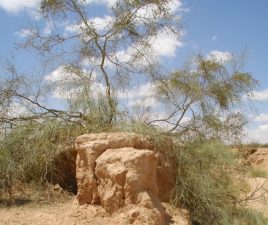 Over the last thirty years, carbon emissions in North Africa and the Middle East (MENA) have doubled with citizens in the Gulf states producing up to 10 times the amount of CO2 as the average global citizen
Over the last thirty years, carbon emissions in North Africa and the Middle East (MENA) have doubled with citizens in the Gulf states producing up to 10 times the amount of CO2 as the average global citizen
Awareness of the dangers of climate change may be on the increase in the Middle East but action to bring down the amount of C02 that is warming the planet sadly isn’t. According to recent study into the carbon emissions of the region over the last thirty years, the only direction that carbon emissions are going is up- and drastically. Carboun, the organisation that brought us the handy infographics (information as a graphic) on water use in the region and also the carbon emissions of countries in MENA, has published a report which found that whilst world average emissions per capita have stabilised, the carbon footprint of the Middle East and North Africa has doubled.
High Carbon Emission In Gulf Don’t Reflect Rest Of MENA
Karim Elgendy, one of the founders of Carboun, told the National that although the region contributed a small percentage of overall world emissions, the carbon footprint per capita of some nations was large. The per capita footprint looks at the carbon emissions of the country in relation to its population. As such, the rich Gulf states who emit a lot of carbon and yet have only small populations have high carbon footprints in relation to the rest of the world. In fact, the average citizen in Gulf nations produces two to ten times the carbon as the average global citizen.
For example, Qatar produces 55.4 tonnes of carbon per person- the highest global carbon footprint . Qatar is followed by Kuwait which ranks as the third world highest, the UAE came in fourth and Bahrain has the fifth world highest carbon footprint. Elgendy insists that high emissions in the oil and gas-rich states are down to the inefficient use of resources which is aggravated by energy subsides.
Arab World Produces Just 5% of Global Emissions
Putting these figures for Gulf nations into context, however, shows that they do not represent the average Middle Eastern nation which is more likely to produce carbon emissions well below the global average. Yemen, Morocco, Egypt and Tunisia, for example, all had carbon footprint less than half the global average. Whats more, Palestinians produces just 0.6 tonnes of carbon a year which is one of the smallest carbon footprints in the world.
Indeed, the Middle East as a whole produces only a small fraction of the world’s carbon. According to the Carboun report, the Arab world which constitutes 5.2% of the world’s population produces just 4.7% of its carbon emissions. In contrast, the US and the European Union which make up 12% of the world’s population emit 32% of the global emissions- China and India (which are usually derided for their growing emissions) only produce 27% of world emissions which is significantly lower than the 37% of the world’s population that they represent.
Dramatic Growth in MENA Emissions Troubling
The data used in the report is based on 2007 World Bank figures so some change will have occurred since then – particularly as the world has been dealing with financial meltdown which has dampened trade and economic growth. However, the dramatic overall increase in the carbon emissions of the Arab region is troubling.
As Elgendy states in the report, “At current rates, it is expected that the emissions of an average Arab person will exceed the global average in the next 5 years, with no sign of a slowing down.” So whilst the region may not be currently contributing a significant amount to the global carbon emissions, unless action is taken to encourage sustainability and the efficient use of resources it most certainly will be in the very near future.
:: The National and Carboun.
:: Image via kamshots/Flickr.
For more on carbon emissions in the Middle East see:
The Middle East’s Carbon Emissions At A Glance
UAE To Cut Electricity Output, Carbon Emissions
Masdar’s Carbon Capture Programme Could Lead To Mass Delirium & Comas
Despite Best Intentions, Gulf Countries Can’t Quit C02



